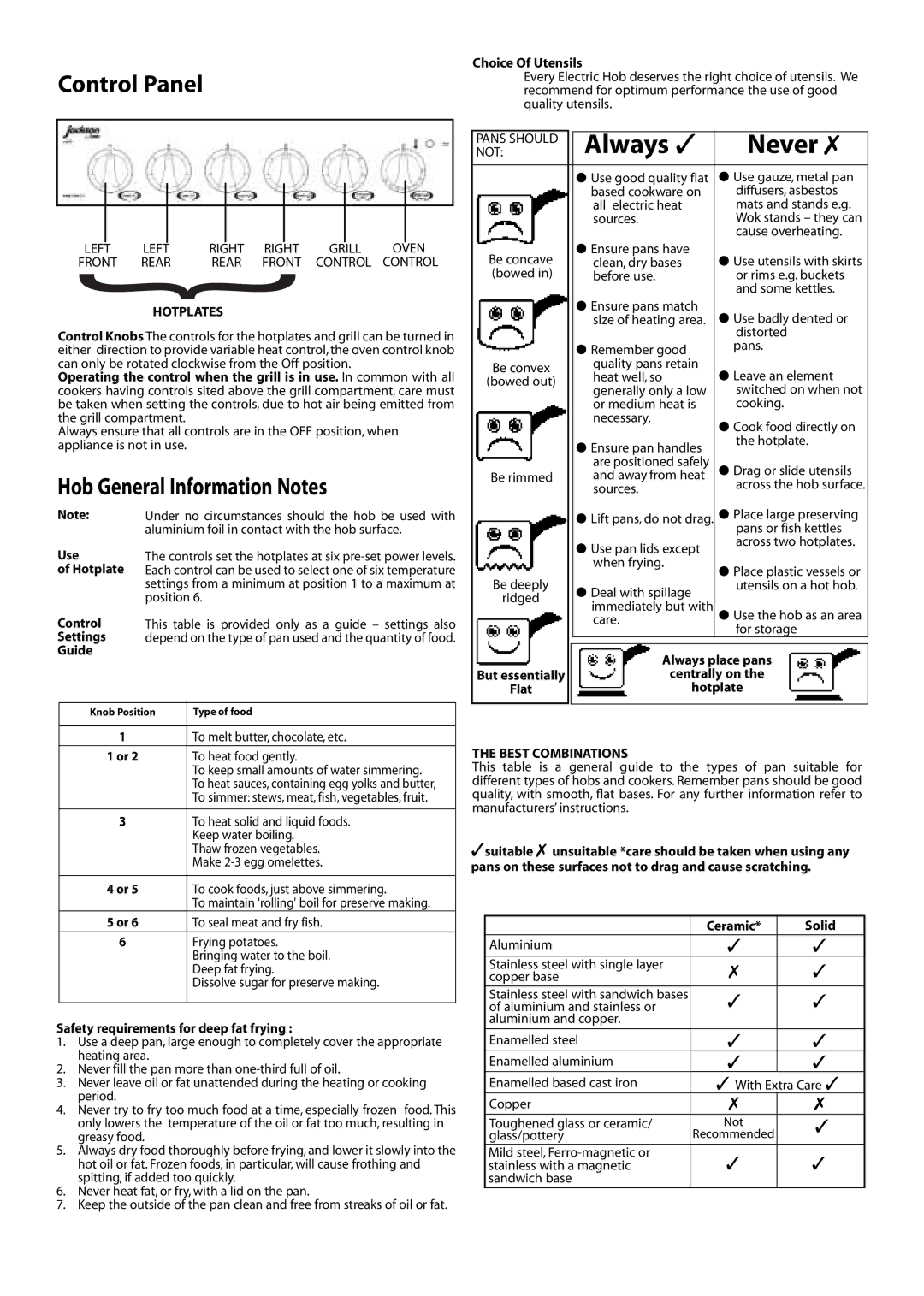J151E specifications
The Creda J151E is a powerful and versatile electric appliance designed to meet the cooking needs of modern households. With its sleek design and array of features, it stands out as both a functional and aesthetically pleasing addition to any kitchen.One of the most notable features of the Creda J151E is its impressive energy efficiency. The appliance is designed to consume minimal power while delivering maximum performance, making it an eco-friendly choice for environmentally conscious consumers. It comes equipped with advanced heating technologies that ensure rapid and even cooking results, reducing overall cooking times without sacrificing quality.
The Creda J151E showcases a large cooking capacity, making it ideal for families or individuals who enjoy entertaining guests. Its spacious oven provides ample room for preparing multiple dishes simultaneously, while the adjustable shelves allow for customized cooking arrangements. This flexibility enables users to bake, roast, and grill with ease.
In terms of safety features, the Creda J151E does not disappoint. It is built with a range of safety mechanisms, including cool-touch surfaces and automatic shut-off functions, ensuring that users can cook with confidence. The appliance also includes a user-friendly control panel that simplifies the cooking process, allowing users to set precise temperatures and cooking times with ease.
Additionally, the Creda J151E is equipped with innovative cooking technologies such as fan-assisted cooking and multiple heating elements. The fan-assisted feature promotes even heat distribution throughout the oven, allowing for consistent results whether baking cakes or roasting meats. The multiple heating elements enable quick temperature adjustments, making it possible to achieve perfect cooking results for a variety of dishes.
Moreover, cleaning and maintenance of the Creda J151E are made easy with its smooth surfaces and removable components. Many parts can be detached and cleaned, facilitating a hassle-free experience when it comes to upkeep.
In summary, the Creda J151E is a feature-rich electric appliance that combines energy efficiency, safety, and versatility. With its ample cooking capacity, advanced heating technologies, and user-friendly design, it is a valuable addition to any kitchen, catering to the diverse cooking needs of today’s households. Whether for daily meals or special occasions, the J151E is designed to deliver exceptional culinary results, making it a worthy investment for those who value quality cooking equipment.

